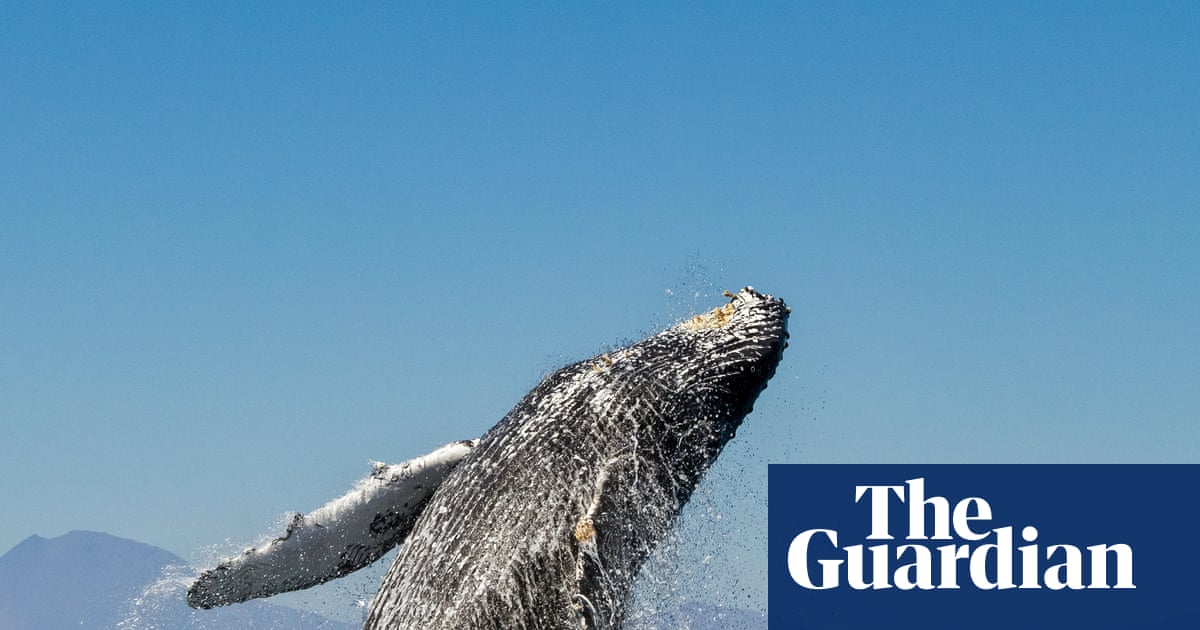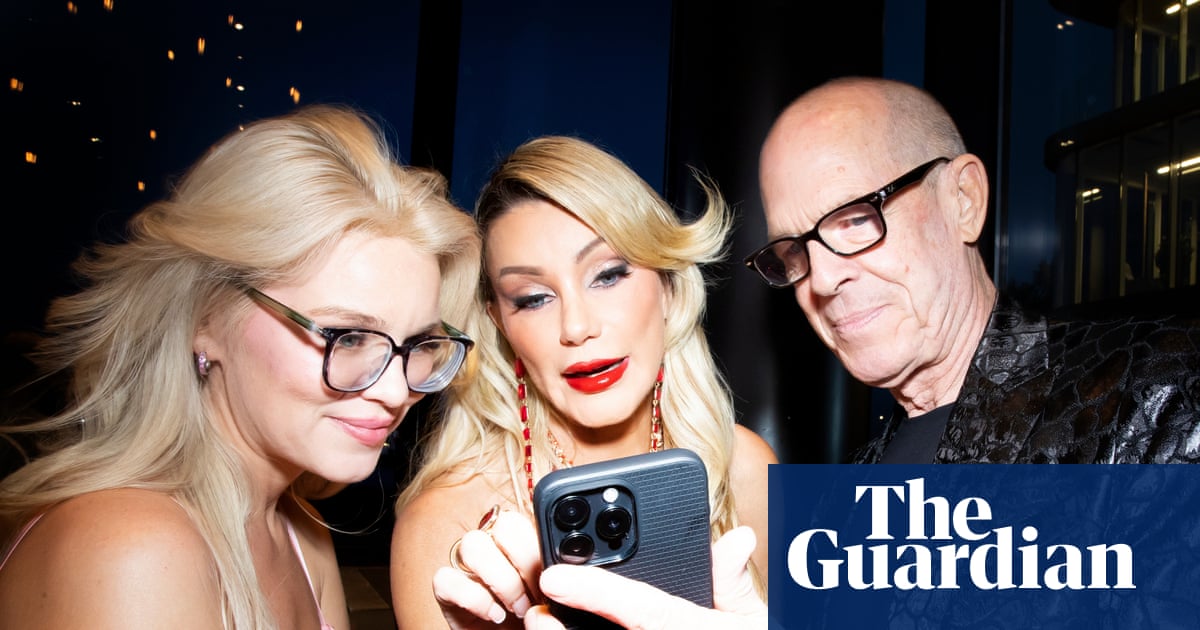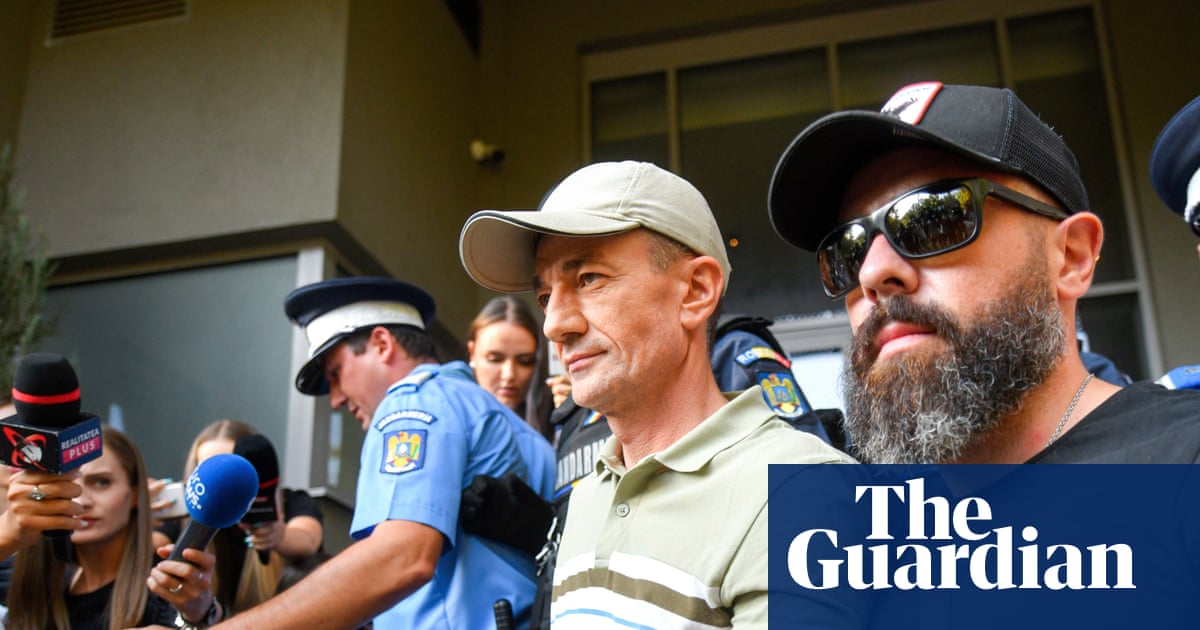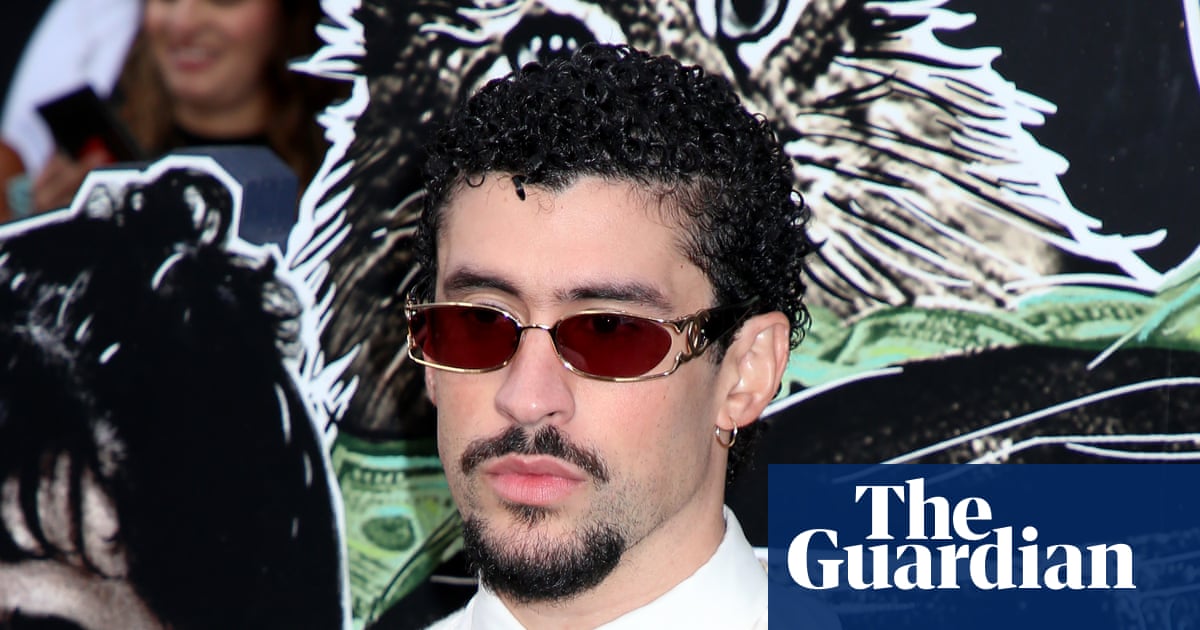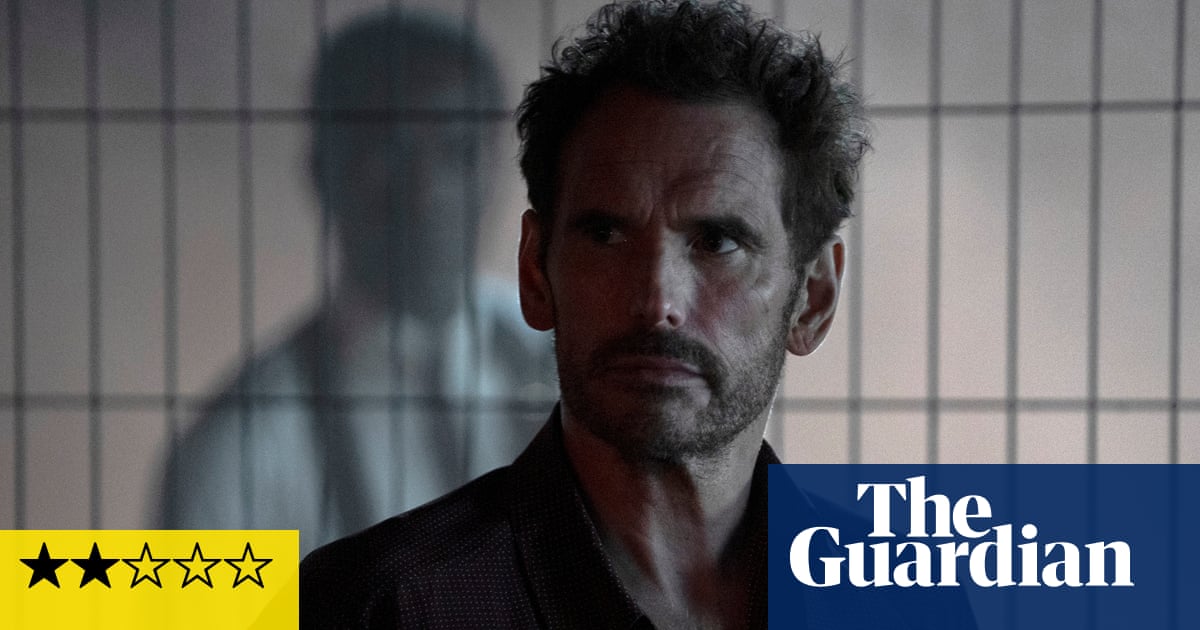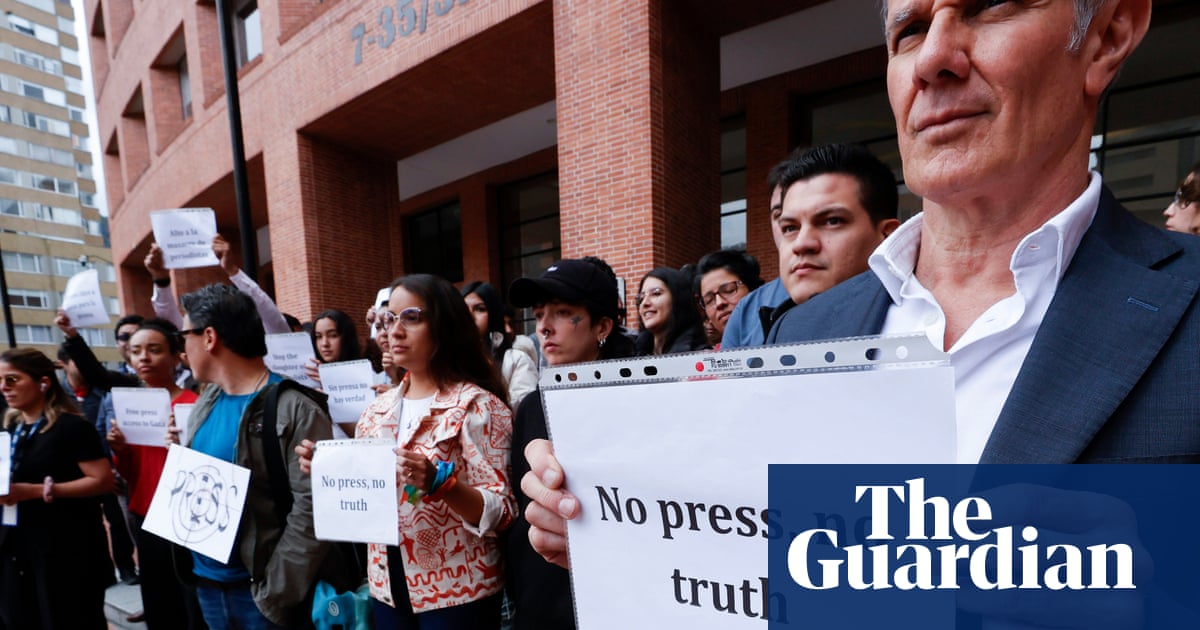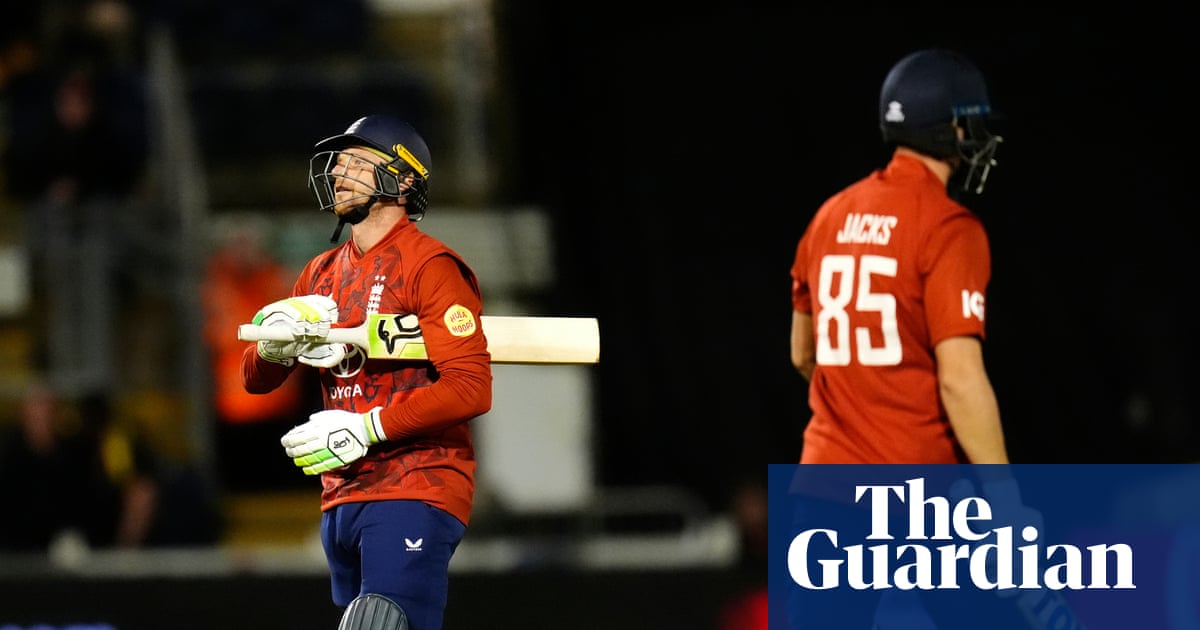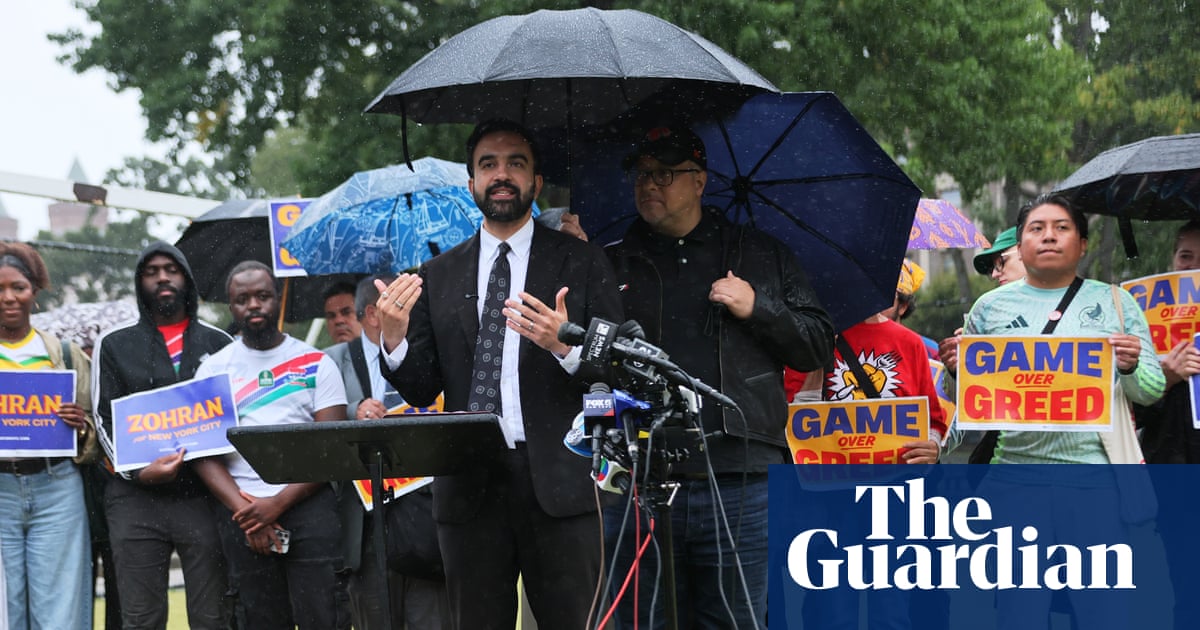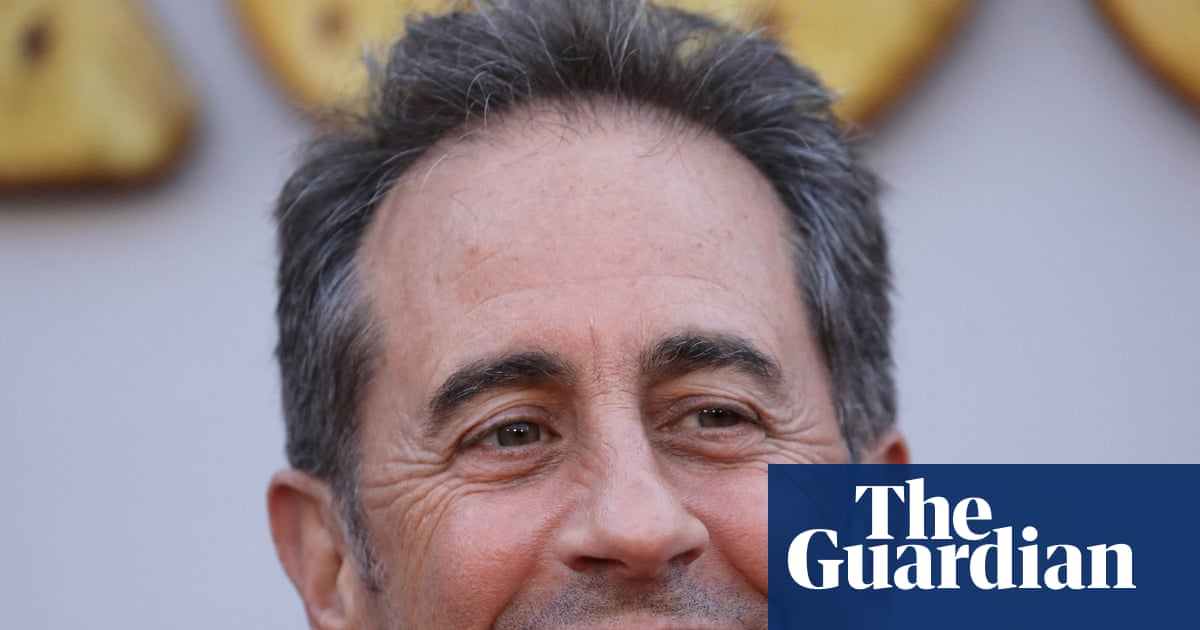Tim Roth reclines in his chair and exudes an unexpected lightness, as if the Atlantic Ocean is casting a summer spray over this corner of Galway. He is upbeat about life, film and even acting, which he once called a nightmare profession he would not recommend to anyone.
“Oh, did I say that?” he asks, surprised. “I don’t feel that way at all, actually. I must have been having a bad one, but that’s OK.” He shrugs and smiles. “I actually love it more and more at the moment.”
It’s a cheering sentiment, and incongruous. As an actor and director Roth is known for plumbing human darkness, a “swallowed pain”. And we are here on a damp morning at a film festival on Ireland’s west coast to talk about grief, a fictional grief depicted in his latest film Poison and an all too real, brutal grief that ambushed his family soon after the cameras stopped rolling.
“The film was actually dealing with something which now is very, very poignant as far as our family is concerned,” he says quietly, the accent pure London, even after decades in Hollywood. “There is no one way of grieving. People react differently – everyone does – otherwise there would be a cure for it.”

Poison, a directorial debut by Désirée Nosbusch, casts Roth and Trine Dyrholm as an estranged couple who reunite a decade after the death of their son, who must be exhumed because toxins are leaking into the cemetery. Based on a play by the Dutch writer Lot Vekemans, it is a raw emotional duel shot almost entirely at a real Luxembourg cemetery.
In October 2022, a few months after filming wrapped, Roth’s son Cormac died at the age of 25. The guitarist and composer had been diagnosed with stage 3 germ cell cancer a year earlier. Roth had considered dropping out of the pending shoot, which was a long flight from the family home in Los Angeles, but Cormac urged him to do it. “He was unfazed by me doing the film. He thought it was a good thing. He was probably wanting to get me out of the house as well,” says Roth, with a wry smile. “It had his seal of approval, otherwise I wouldn’t have done it. If he needed me to stay close, I would have been staying close.”
Shooting required Roth and Dyrholm to spend extended periods in the cemetery – filming paused during funerals – but the actor remained hopeful about Cormac. “At that point we were trying to remain positive because he was still with us,” Roth recalls. The tone is matter-of-fact, the pain shielded.
Poison depicts a couple torn apart by bereavement, a forensic dissection of an inability to share loss. “The film has such a truth to it because it shows that how you grieve is as individual as a fingerprint,” says Roth. “Now with my friends and family I see that everyone is doing and handling that differently and need to be respected for it.”
Before filming Roth told Nosbusch his son was ill. The director had had a scare with her own son years earlier when he was diagnosed with diabetes – an experience that drew her to Vekemans’ play. She says she gave the actor time and space: “I did not go up to him every day to ask, ‘How is it?’ It was all with looks. Sometimes he needed a break and I go, ‘Sure.’”
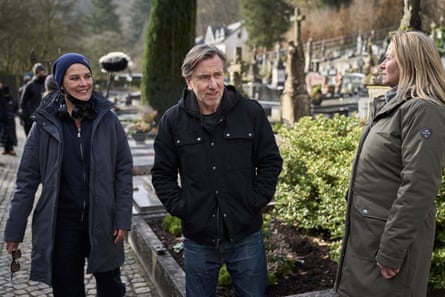
Nosbusch was devastated when she learned Cormac had died. “I was heartbroken because I honestly for a moment felt like, ‘Was my movie bad luck? Did my movie become a reality?’” Roth told her he had no regrets about making the film and that in a way it helped him to face what was to come.
In a statement after Cormac’s death Roth, his wife Nikki Butler and their other son Hunter said the grief “came in waves” and that they had lost a “wild and electric ball of energy”. They quoted one of Cormac’s mottoes: “Make sure you do the things you love.”
Perhaps it is a comfort to Roth senior that in pursuing acting, which he fell in love with as a teenager, he has heeded the injunction. The result is a long, varied career ranging from obscure art house to blockbuster, with Roth’s passion for his craft always evident on screen.
The genesis was a school musical of Dracula. “I did a bad knockoff of The Rocky Horror Picture Show. But I was hooked.” He briefly did other jobs, packing shelves at Tesco, sorting Christmas mail, phone hustles. “I was one of those guys that would ring you up and try and sell you advertising. I was awful at it.”
His first break was the 1982 television play Made in Britain, which cast Roth as a racist skinhead and brought leading roles in Tom Stoppard’s 1990 Rosencrantz & Guildenstern Are Dead, Robert Altman’s 1990 biopic Vincent & Theo and as Mr Orange in Quentin Tarantino’s Reservoir Dogs. The New Yorker film critic Pauline Kael described Roth’s acting as “a form of kinetic discharge”.
An eclectic, non-stop career followed. “I made a conscious decision very early on … that I wanted to be an actor and not a movie person,” says the 64-year-old. Asked if he would consider a Liam Neeson-style swerve to action flicks, he almost laughs. “I don’t look right. It’s never really cropped up. I just don’t fit.” Actually he might: he is lean, with a trimmed beard, jeans and boots.

Roth divides jobs into two categories. “There are the ones to pay the rent. Your agent will call and go, ‘Money job if you need one.’ And there are the ones you do for yourself.” The former has bequeathed some cringes, he concedes. “I’ve done some atrocious work.” Roth declines to supply a list of shame – “No! You all know it” – but No 1, surely, was playing Sepp Blatter in United Passions, Fifa’s 2015 derided love-letter to itself.
after newsletter promotion
Still, debacles teach you things, says Roth. “Sometimes they’re the most valuable experiences. You have to do your best even if your heart is not in it. Sometimes, when you’re doing a bad film, those are the best experiences.”
Some big budget fare he recalls with affection. He says he played Abomination in The Incredible Hulk – a villain he reprised in Disney’s TV series She-Hulk: Attorney at Law – to embarrass his children, who were then at school. Other lavish productions included Tim Burton’s Planet of the Apes and Sky Atlantic’s crime drama Tin Star.
To not taint the memory of a shoot Roth does not watch his own films or read reviews. “You keep them in your head and the battering they take down the line is a separate issue. Maybe it’s just protection.” That applies even to films that are well received, though he made exceptions to watch Tarantino’s The Hateful Eight and Michel Franco’s drama Chronic about an end-of-life care nurse.
Having directed The War Zone – a harrowing drama of incest and sexual violence that drew on his own abuse as a boy – Roth is sympathetic to first-time directors. “I love watching them figure it out on set as they’re going along. It takes a long time to get to that position, quite often, and hard graft. Then they get their day.”
Poison fits that profile. Nosbusch, an actor and former Eurovision presenter, spent a decade wrangling funding and talent. “It’s two people talking in a cemetery. It took a lot of convincing,” she says.
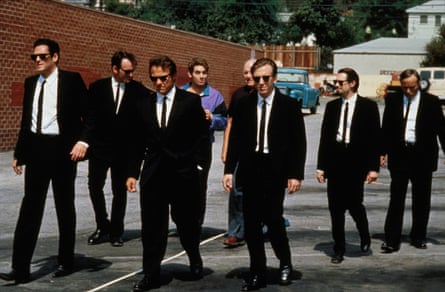
The next time I speak to Roth is over Zoom from New York, where he is making a “comedyish” film set on Staten Island in the run-up to the January 6 Capitol attack. I wonder what he thinks of thegrowing anxiety over far-right populism.
“Trump? I think he’s doing incredibly well,” says Roth. There is a pause, then he cracks a wry smile. “It’s thoroughly depressing and heartbreaking. It feels like he is the guy that opens the door for the real dangers … so even when he’s gone, I worry about what will be left behind. It is quite scary.” Roth has had no problem entering or leaving the US, where he lives, but he worries about friends. “I’m in pretty good shape, I’m a white Londoner. That’s just the fact of it.” But he has friends “who are in danger”, he says, without elaborating.
He is puzzled by Trump’s announcement of tariffs on foreign films, ostensibly to boost production in Hollywood. “None of us quite understand it. I don’t think he does. Until something actually happens we don’t know how to react.”
Roth is delighted the Tories no longer rule his homeland – “a very good thing for humanity” – but sounds underwhelmed at the Labour government’s record so far. He worries that Nigel Farage will gain momentum. “I like calling him Farridge,” says Roth, rhyming the name with cabbage. “I don’t like calling him anything, actually.”
Roth’s home in Pasadena, north-east of LA, narrowly escaped the wildfires. “They were up in the mountain just above us. Trees were flying; we were very lucky that they didn’t fly into the house.”
Despite the perils of politics and nature, and the occasional fantasy of moving to Europe, Roth has no plans to leave. “We went there because the schools were good. That was it. That’s the only reason we moved out there and I love it. It’s where my kids grew up. It has incredible history for me.” Left unsaid, in the silence that follows, is the grief etched in that history.

 3 months ago
68
3 months ago
68

